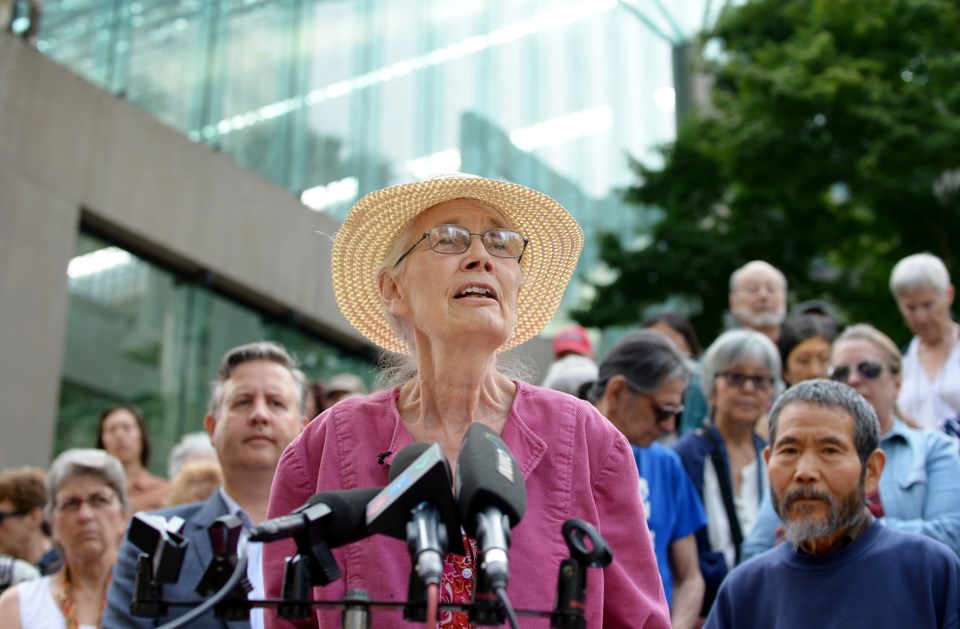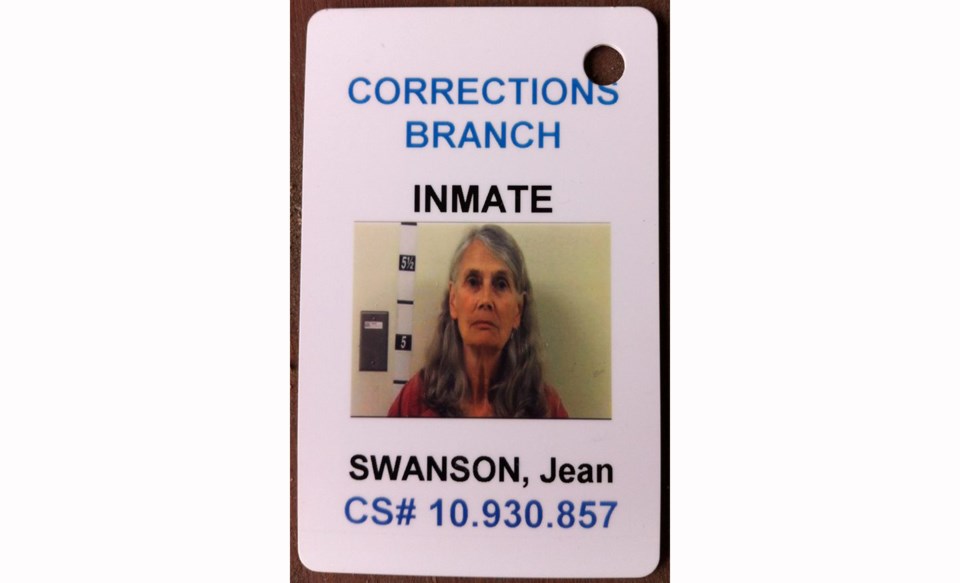Jean Swanson says she has no regrets about getting arrested and serving several days in prison for protesting the government’s purchase of the Trans Mountain pipeline. In fact, she said she would do it all over again.
“It was an interesting four or five days, really interesting,” Swanson said Monday, one day after being released three days early from Alouette Correctional Centre for Women in Maple Ridge. “I’m hoping there will be a lot more people doing it, until we get this pipeline stopped… It was definitely worth it. I don’t think I’ll do it again in the near future, but I could maybe do it again in a few months.”
The COPE city council candidate was among a group of eight protesters arrested June 30 for taking part in a blockade at the gates of Kinder Morgan’s Burnaby tank farm. Swanson and six others, including former B.C. Teachers’ Federation president Susan Lambert, were sentenced Aug. 15 to seven days in jail. In the end, the protesters served four days.
Swanson remained defiant, speaking to the media and supporters on the steps of B.C. Supreme Court downtown before heading inside for the sentencing hearing.

“It actually felt really good,” she said of standing up to receive her sentence. “There was all kinds of support there and people were so supportive and it felt good. It felt like I was doing the right thing.”
She described the experience of going to prison as eye-opening.
“I am a very privileged person. I am white and I have a home and I have a nice old age pension that I don’t have to work for,” she said. “So I’m way more privileged than most people in jail. So you get a glimpse of what they’re treated like.”
Swanson said she was first put in a cell in the basement of the courthouse.
“That was the worst. That was just a small space. Everything was really hard and there was a toilet/sink thing in there and a really hard bench and a really bright fluorescent light and a roll of toilet paper and that was all that was in there,” she said. “We were in there for four or five hours with no contact, by ourselves. We were all in individual cells. We couldn’t talk to each other.”
From there, she said, they were told to take their shoes off, shackled, put in handcuffs and “thrown into a cage in a car to go out to jail.”
The prison includes various levels of security, and Swanson said she first spent some time in the more secure area of the prison.
“There was a cell there where the light is kept on all night and the beds are really hard,” she said.
“And then we got transferred to medium security,” she added. “The actual facility was nice, I mean there was even a window that you could have open and it’s out in the country and you could go outside, but still there’s a lot of bureaucracy. You have to do what the guards say.”
Swanson said one of the things that really stood out to her were her fellow inmates.
“When we got to the jail the other prisoners were unbelievably awesome and sweet and kind and helpful,” she said.
“Susan Lambert when she was arrested she said that we were political prisoners, which I agree with. We were political prisoners,” Swanson said. “But I started thinking afterwards that all those other women are political prisoners, too. Most of them anyway because using drugs should be a health issue not a criminal issue but they’re in there. Being poor should be a justice issue not a criminal issue. Being homeless shouldn’t be allowed in this country, yet there are people in there because it’s better than the street. They told us that.”
@JessicaEKerr



